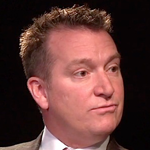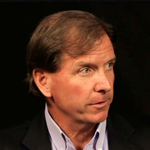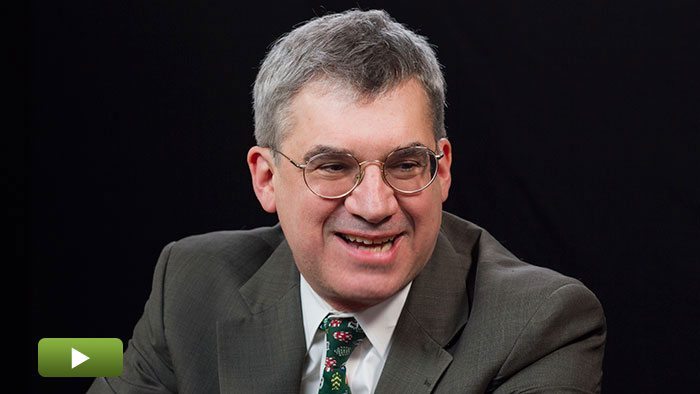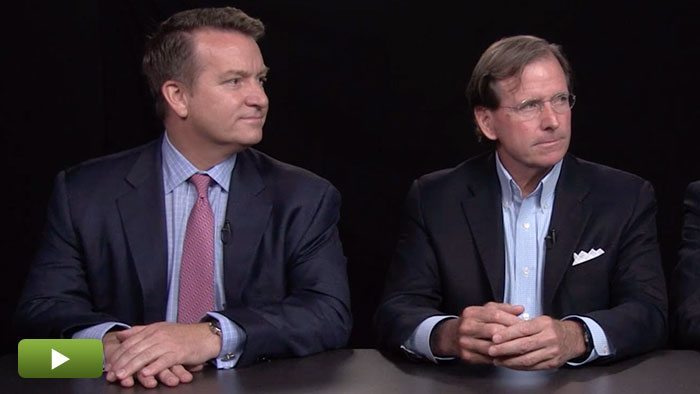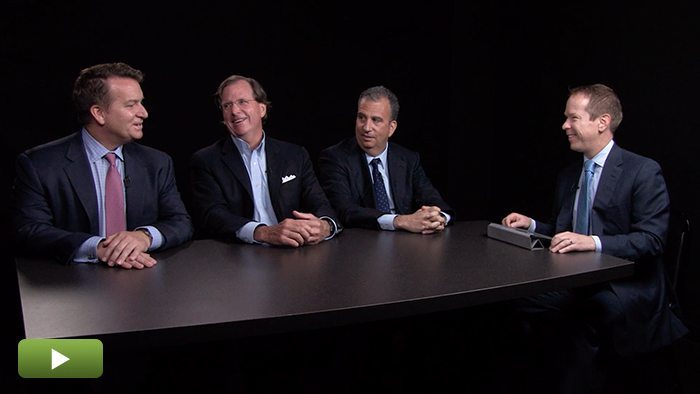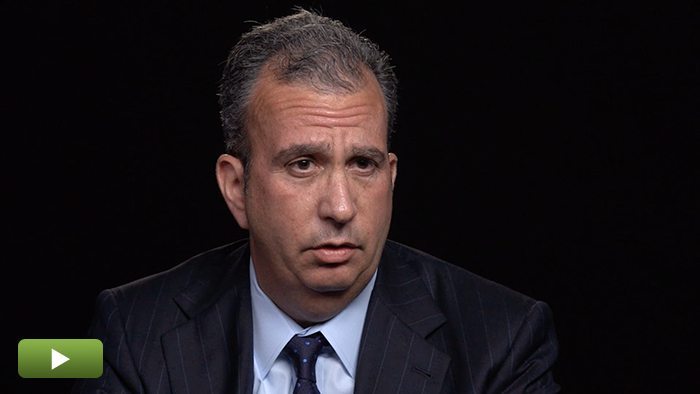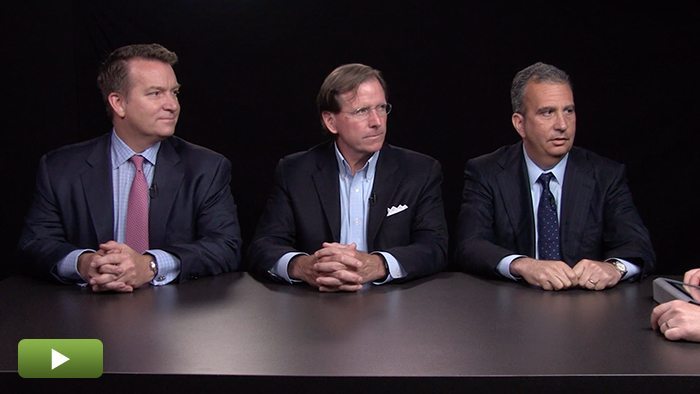Launching with the Right Talent
Three PE veterans discuss the importance of a young PE firm recruiting the right talent— professionals who may be drawn to big name-brand firms rather than a spinout. Also, the importance of structuring economic alignment among partners.
Transcript Download Transcript
Launching With the Right Talent
Lessons Every Founder Should Learn
David Snow, Privcap: Today, we’re joined by Kenneth Clay of Corinthian Capital Group, Bob Nolan of Halyard Capital, and Steve Millner of Gen II Fund Services. Gentlemen, welcome to Privcap. Thanks for being here.
We’re talking about things you wish you’d known before launching a private equity firm. We have two private equity firm founders here. And, of course, Steve, you helped many firms get launched. So, I’m fascinated to hear your perspectives. Let’s talk about the most important aspect of building a successful private equity firm, and that’s getting the people right. When you were a newer firm, either a spin-out or a de novo firm, you have to attract talent to the firm. You can’t do it all yourself. Bob, how difficult is it for a newer or less-developed private equity firm to attract the right kind of talent, given the many other places these successful and talented people could work?
Bob Nolan, Halyard: Just as in the case of deal sourcing when you’re a new fund, you rely on the network you’ve already developed over time, wherever you’ve originally spent your time. It’s somewhat true in attracting talent as well. You’re relying on your network to help introduce talent to you. It may come from different sources. It may come from investment banks, other private equity funds, or god forbid, even a law firm (can we say that?), or an accounting practice or consulting practices. The fact of the matter is you’re right. You’re not going to compete with the largest brand names for those who desire the largest brand name. But, for those who want to be part of an original effort and probably gain more traction at the original stage as a meaningful member of the team than they might at a large institution, that’s what you’re selling them. You’re selling them the entrepreneurial promise.
Snow: Kenneth, what was it like founding Corinthian Capital Group? No one knew what Corinthian was before, as you were forming it, and you presumably met with a lot of younger professionals who maybe were thinking about working at a place like Blackstone. What led to them being interested in and possibly working at Corinthian?
Kenneth Clay, Corinthian: It was just what Bob mentioned—the chance to get in early. There is an old adage that the one position you can never be promoted to is founding partner, and for younger professionals, there is no substitute for being in early. As investors, even the deal professionals are risk averse, so they have to weigh the prospects of going to a very large firm where they’re never going to run it in all likelihood. They may not even be important, but they have so much under-management that they can have a nice livelihood, versus creating and building something and being (as Bob mentioned) much more influential. We found there was a fairly clear division between the people who wanted to do so-called banking on the buy side with big firms or they wanted to get involved with something entrepreneurial. Frankly, if you get the right talent in as those early hires come in, it’s critical and so helpful in building the firm.
Snow: Quick follow-up question: you had interviews with some people where you could tell they were averse to the risks of a younger firm such as yours and didn’t want to take on that risk?
Clay: Absolutely, yes. We ended up trying to hire a couple of folks who ultimately went to other firms and hopefully enjoyed success. But we ended up also getting some terrific people, all of whom are still with us today, eight or nine years later.
Steve Millner, Gen II: Young folks today, especially talented folks, have many options. And, as you know, my colleagues correctly stated whether you’re starting a private equity firm, technology firm or administration firm, some folks are going to be attractive to a large firm name. And others have more of an independent entrepreneurial bent, and want to join along in the journey.
Snow: Setting up economic alignments in a new firm is very important. Kenneth, what was that process like in getting it right? Was that an intense process—discussion among not only your partners but the newer employees?
Clay: It’s an intense discussion with each fund, no matter where you are. Really capable, smart people know their value, and they want to get paid. So, it is a bit tricky. Really talented people will cost you more than you may anticipate. And, as a founder, you had better be prepared to compensate them fairly relative to their peer group, and also in exchange for taking some risk, or they’re going to go elsewhere. So, some people scrimp on the talent side and want to maintain as much of the economics for themselves as they can. At Corinthian, we’ve tried to be much more democratic in attracting and retaining great people and spreading that around. But it’s like beauty—the fairness of the whole thing is in the eye of the beholder. I will say I’m more empathetic than I used to be as to how hard it is to be in that seat and to balance those competing priorities.
Snow: Bob, as someone who disassociated your own organization from a larger organization, did you spend a lot of time on the economic alignment as an independent company? Was that challenging?
Nolan: Absolutely I did. By the way, the institutional marketplace will ask you about it, so I’m in agreement with Kenneth—the more democratic, the better the result. Now, there is a clear paper for performance element in compensation. There is the element of both what they’re delivering today and what you expect them to deliver in the future. But what binds everyone together is the notion that there is a fairness principle, and that principle gets tested right out of the gate. So we spent a lot of time on it, and it’s not only just the pure economics. There is the management company ownership, which, by the way, is both positive and negative. I’m always amused at people who spend so much time on this issue, but there is recognition in owning the management company, and people want to be recognized for their contribution. As I say, it’s a natural tension in business to begin with, but as you’re forming, it’s the foundation layer for your success.
Steve: It’s very interesting to me that we get calls all the time from Kenneths and Bobs talking about what are other firms doing in terms of how they allocate the carry points. That’s a hot question, so one thing we do annually in our firm is a benchmark—we take every client we have, and to the extent we have information elsewhere, we put a composite together. That’s a hot piece of paper. Our clients use it as a good reference point to see where they are in the market. It’s very helpful, but it is a very relevant data point as folks build out their team.
Snow: Of course, the investors care about it as well. They’re performing due diligence on whether or not a firm is going to blow up because there is not a good distribution of those carry points, right?
Steve: Yes. And I’m sure my colleagues who deal with that daily can address that better, but one of the items on the checklist deals with how points are allocated. It also starts to drive the dialogue regarding succession planning. So, it’s a much bigger discussion.
Nolan: Absolutely. You’ve touched the point, which is the institutional investor will ask to see the carry-point distribution. They have their own formula for what they think is appropriate. And, as you said, whether people are designated a key man at the outset and how you succeed from that position is critical to the future of the organization.
Clay: That’s absolutely right because if they do all the work to get comfortable with the organization they like that to be prospectively a two, three or four-fund run, where they have a body of knowledge that they can then extend to future funds. So, even if you’re doing a great job, if the firm is not going to have longevity, that’s a huge strike against you.
